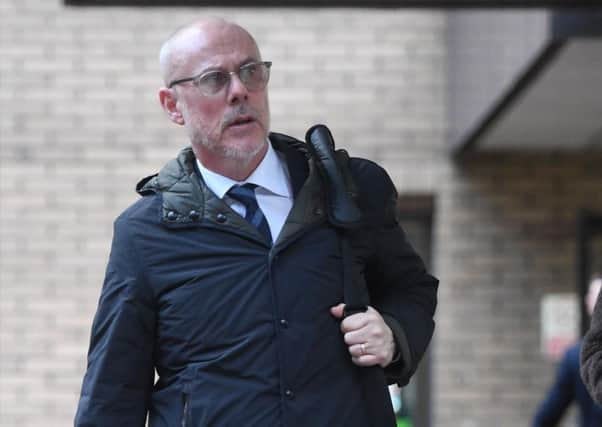Tony McGlennan: Sentences for football bribery should serve as a warning to Scottish clubs


They follow a landmark trial which saw Dunfermline-born coach and former St Johnstone and Livingston winger Tommy Wright – along with agents Dax Price and Guiseppe Pagliara – receiving suspended jail terms totalling four-and-a-half years. The agents were found guilty of offering a bribe in order to gain influence in the selection and recruitment of players, whilst Mr Wright was convicted of having accepted the bribe.
The convictions under the Bribery Act 2010 also send out a message to the wider game, including our own clubs here in Scotland, that investigative agencies such as Police Scotland are likely to begin to take a far more active interest in football’s operations.
Advertisement
Hide AdAdvertisement
Hide AdFor whilst this case unfolded south of the border, its implications will undoubtedly be felt here, too. Indeed, it would be naive to assume that Scotland is immune from the challenges of corrupt behaviour – and it’s not just individuals that can face charges.
It is possible that clubs themselves can be charged under the Bribery Act as a result of the corrupt actions of their employees or of agents engaged on their behalf, and if convicted, they can face the prospect of unlimited fines.
Scarier still, this can occur even where the club had no idea that the corrupt behaviour was taking place. That’s as much of a wake-up call as it sounds, particularly where there may be a minority of individuals floating around the game who continue to believe that they are above the law.
Fundamentally, the Bribery Act requires all organisations to have adequate procedures in place to prevent bribery.
If Scottish clubs don’t have those measures, and bribes are issued on their behalf by employees or persons associated with the club, then they are exposed to criminal charge, even where the organisation at a higher level was unaware of the corrupt behaviour.
Many clubs have been alive to the issue and will be in a position of security, knowing that they have dedicated efforts towards shoring up any gaps in their procedures that might allow corrupt behaviour to flourish – but not all will be quite so certain.
Some may continue to complacently rely on an assumption that things have always been done properly, and always will be done properly, and will not have assessed their organisation and procedures against the risk of bribery. It’s critical then that those who have been until now proceeding upon just such a complacent mind set, immediately commence an urgent process of cultural realignment. A proper assessment of risk is required. That means that clubs should conduct a full examination of the whole of their organisation, but in light of the case of Price, Pagliara and Wright a priority must be regulation of player transfers and acquisition.
Time and resources will be needed in conducting these assessments, in setting out anti-bribery policies, and in reviewing and revising transaction approval procedures, and payment systems.
Advertisement
Hide AdAdvertisement
Hide AdFor clubs where resources are stretched this will be a big ask, but following upon these convictions, there is no way around it.
• Tony McGlennan is legal director at Addleshaw Goddard and the former Scottish FA compliance officer.